If anything defined the experience of staying up to watch the results of the 1997 General Election, it was probably the result in Michael Portillo’s Enfield Southgate constituency.
Earlier in the night Newnight presenter Jeremy Paxman had asked the eurosceptic cabinet minister whether he might fancy a run at the leadership of the Conservatives if the exit poll was right, and John Major’s time in Number 10 was over.
By 3.10am Portillo was stood on the stage at Enfield Town Hall defeated. But it was who had beaten him – standing beside him barely able to contain his excitement – that I was fascinated by.
Stephen Twigg was both the youngest and first openly gay president of the National Union of Students (NUS) when he was elected in 1990, standing as part of the National Organisation of Labour Students (NOLS).

It’s hard to explain the grip that NOLS had on NUS in the 90s and 00s. In April 1991, when delegates to NUS Conference received their manifesto documents they were surprised to see that there were no Labour Students – the nominations had arrived at NUS HQ after the deadline (because, apparently of a bomb scare at King’s Cross) and the Elections Committee refused to accept them.
Hence in Blackpool the NOLS candidates ran a campaign in favour of “Re-open Nominations” – and the option won the presidency of NUS by 381 votes, as well as National Secretary, VP Education and VP Welfare. A fresh election was staged there and then – and Twigg took it.
His successor at NUS Lorna Fitzsimons, and her successor Jim Murphy (who went on to run Scottish Labour when it was pretty much wiped out at Westminster in 2005) were also elected as MPs on the night in 1997. It was quite the run.
A new intake
The big change that in the new Parliament is that is that we have a raft of MPs that represent urban areas with a university, college or at least some students in it.
That matters not just in the Department for Education (DfE) (or wherever universities end up), it matters right across government – health, transport, housing, benefits and the Home Office spring instantly to mind as areas that have tended to ignore the circa 3m students in the UK.
But as well as urban MPs in general, there’s a whole raft of MPs that have won seats that have previously occupied students’ union positions.
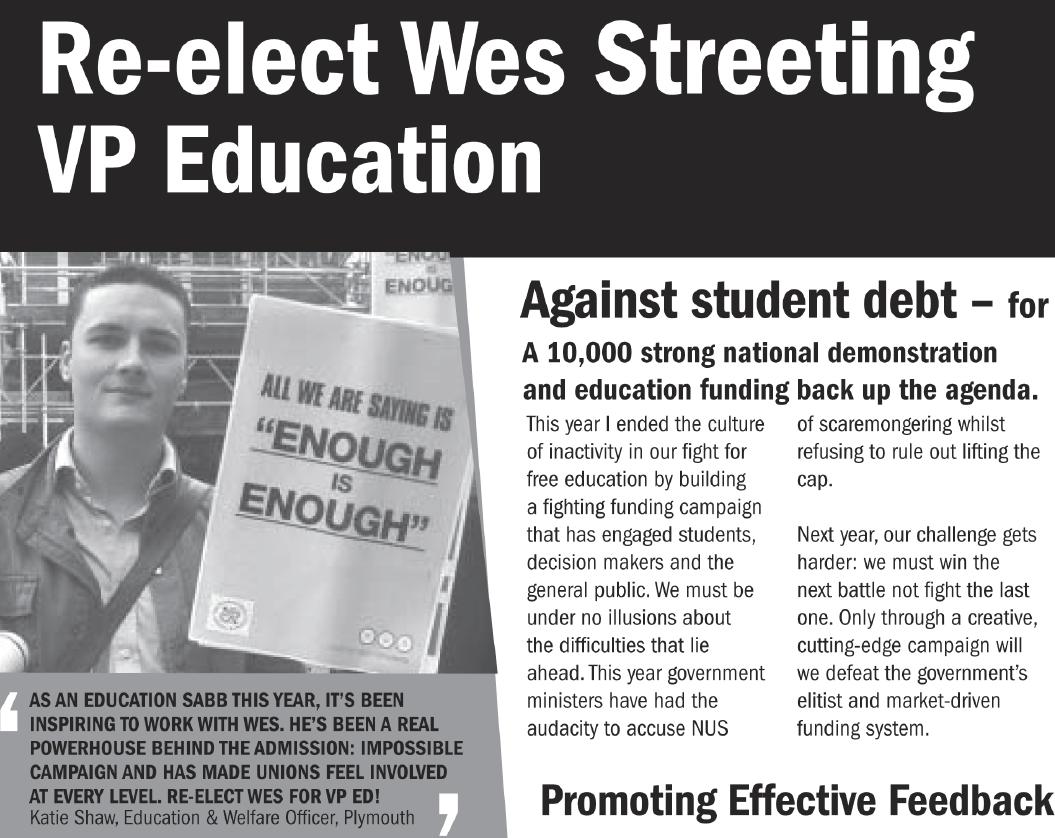
Here I’ve rattled through some of the interesting ex-student leader Labour hopefuls that are new in Parliament. It’s neither a comprehensive list nor covers the numerous incumbent MPs that have engaged in student politics (of which the obvious names include Wes Streeting, Darren Jones, Anneliese Dodds and Pat McFadden), nor those winning from other parties.
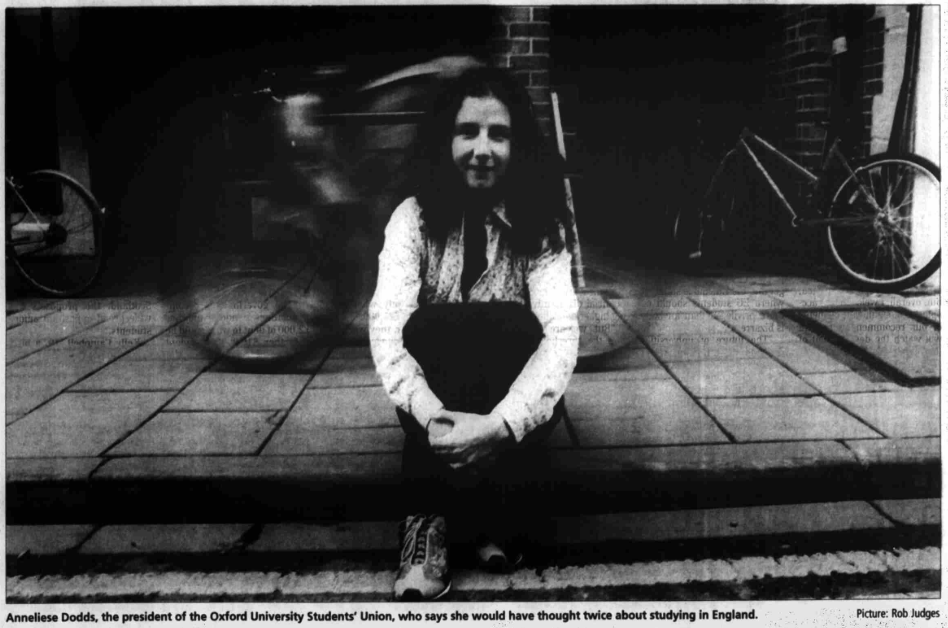
Remember Rand
Let’s start up in Altrincham and Sale West, the former seat of Graham “1922 Committee” Brady, where the old Labour candidate for the seat, local Ben Hartley, resigned in a surprise statement on social media less than two weeks before the election was called. His replacement is now Connor Rand, a one-time party organiser and senior researcher for Usdaw. He was also the impressive Undergraduate Education Officer when I worked at UEA SU in 2015 – with a strong body of work on hidden course costs, nursing students and even students using food banks.
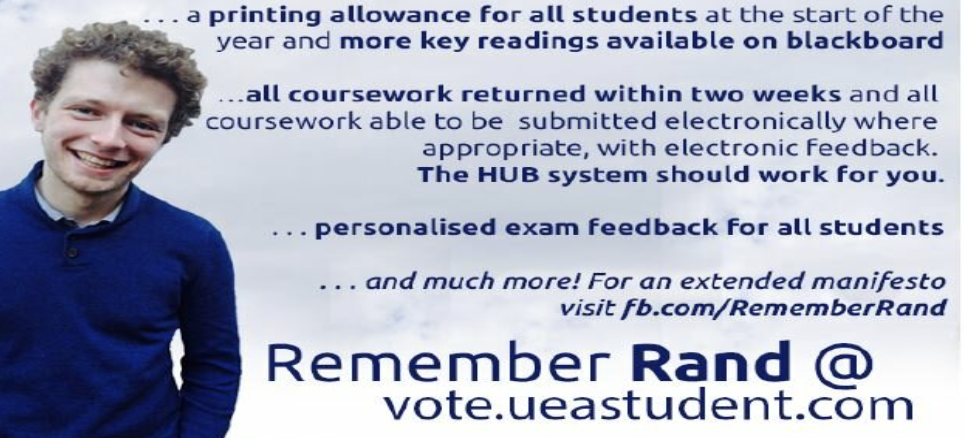
Olivia Bailey, has been director of social policy at Public First, and was head of domestic policy for Keir Starmer having worked at Ipsos Mori and directed policy research for famous think tank the Fabian Society.
But before all of that she was a student at Oxford, and both the National Chair of Labour Students and NUS’ Women’s Officer – a platform she used to launch “Hidden Marks”, the groundbreaking study of women students’ experiences of harassment, stalking, violence and sexual assault in 2010. She’ll be alarmed to learn that 14 years on, there’s still no formal regulation in that space. At NUS, Bailey was also the inventor of the “NUS Pledge” – the butterfly that flapped its wings all the way to the Liberal Democrats’ downfall at the ballot box for much of the second half of the last decade.
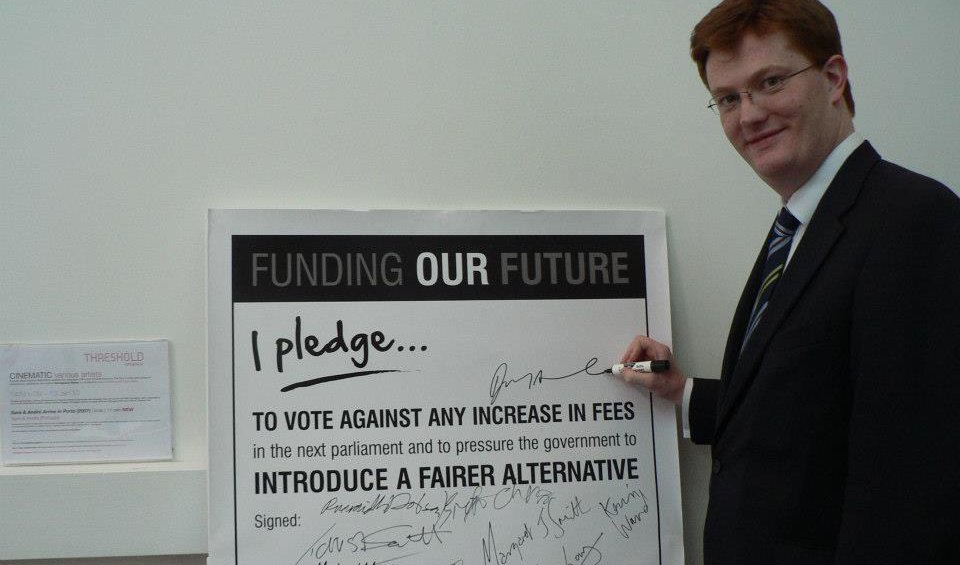
Andrew Pakes – who has taken Peterborough – was both Treasurer and President of NUS from 1997 to 2000, and found himself having to defend the introduction of tuition fees as a Labour president as a result. He used that time to call for extra help for the poorest students – calling for the reinstatement of housing benefit, income support over the holidays and flexible one-off allowances when needed.
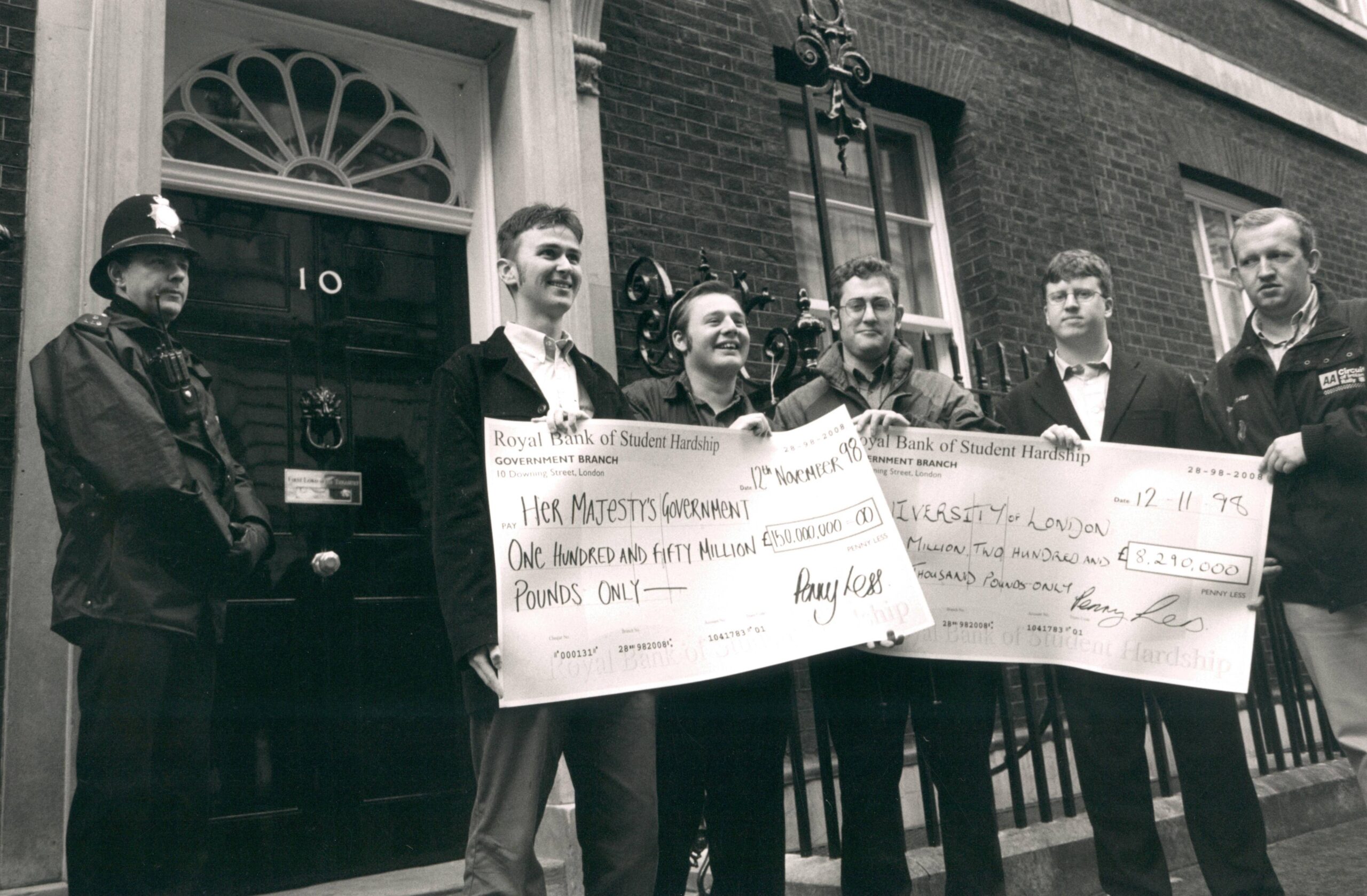
As if by magic
There’s a number of former student activists at the centre of the restoration of the Labour Party’s fortunes in Scotland. Melanie Ward is a former NUS Scotland President from Stirling, who has taken back Cowdenbeath and Kirkcaldy – in the mid 00s Ward was warning that vulnerable students who feel they have to leave were “being left with no qualifications at all and are seen as a drop-out when it may be no fault of their own”.
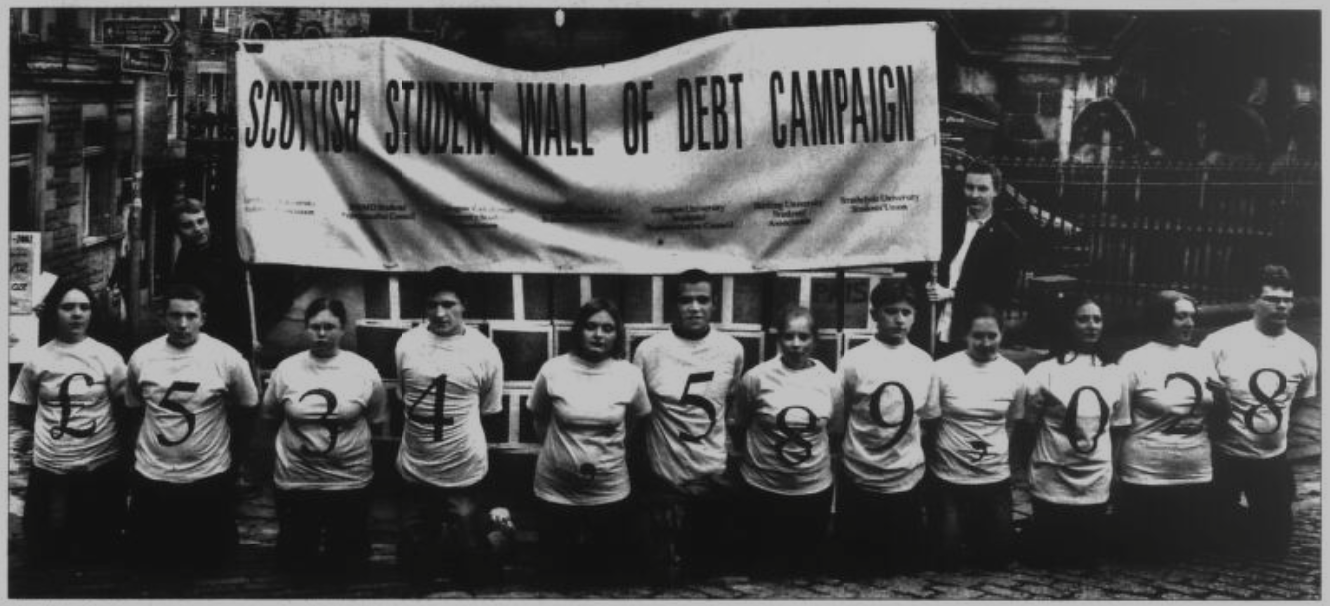
Kirsty McNeill was President at Oxford University SU in 2001, and has unseated the SNP in Midlothian. McNeill – who has been Save the Children’s executive director of policy, advocacy and campaigns and a former Downing Street adviser to Gordon Brown – famously led a successful protest to stop the visit of Holocaust denier David Irving to the Oxford Union debating society at the time. She may have views on whether the Higher Education (Freedom of Speech) Act 2023 makes it harder to ban that kind of activity today.
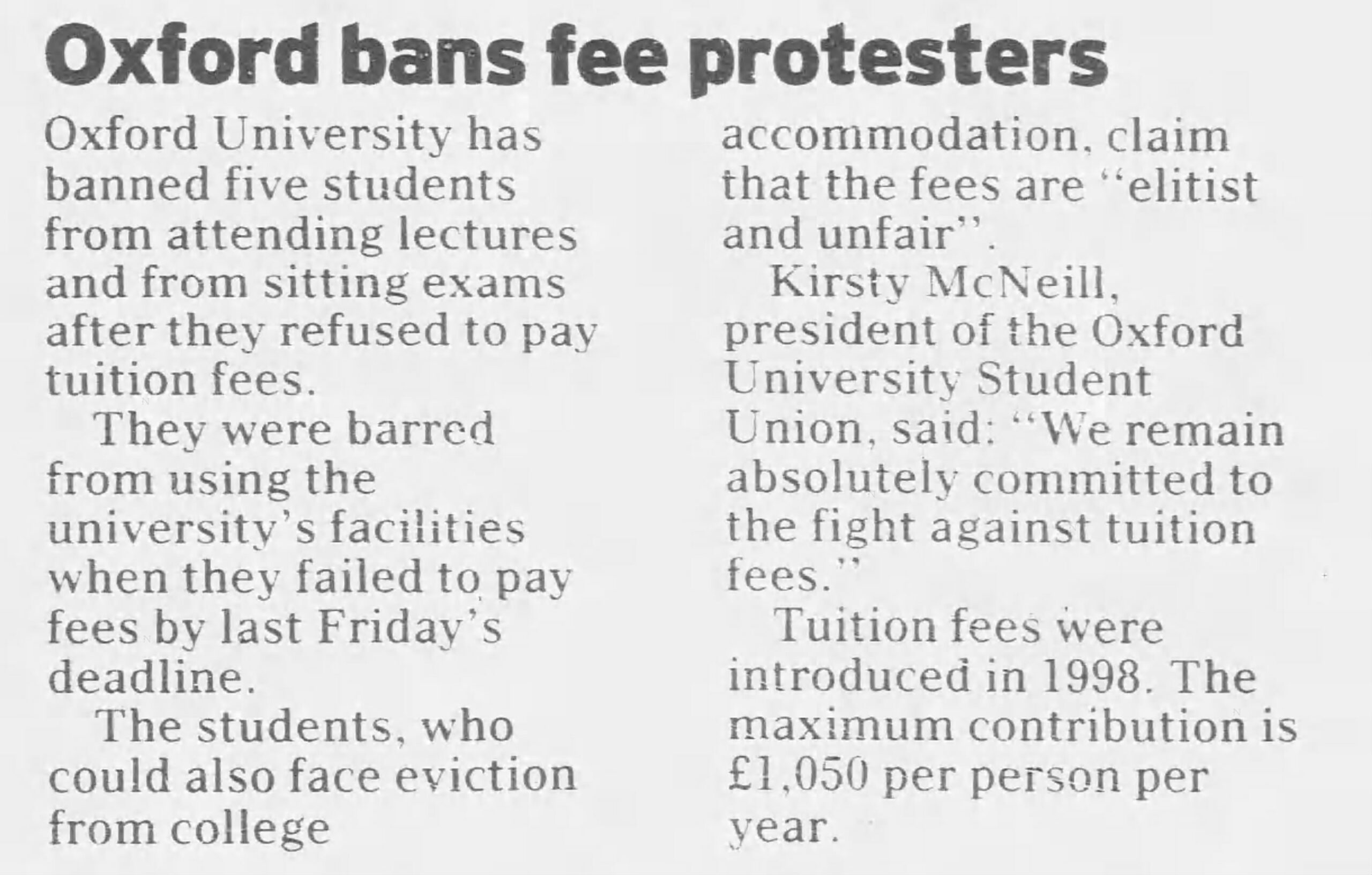
Blair McDougall was chair of the Labour Club at Glasgow, where he acted as Eastenders’ Ross Kemp’s campaign manager during the 1999 Rectorial election. He went on to serve as chair of Scottish Labour Students from 2001 to 2003 before becoming a special adviser to Ian McCartney, Minister for Trade, Foreign and Commonwealth Office and James Purnell, Secretary of State for Culture, Media & Sport in the governments of Tony Blair and Gordon Brown – as well as being “head strategist” to the Better Together campaign during the 2014 Scottish independence referendum. He’s won in East Renfrewshire.
Richard Baker was a sabbatical officer at Aberdeen, an NUS Area Convenor and then both Depute and President at NUS Scotland in the 90s. He’s a former MSP, and has won Glenrothes and mid-Fife. At the time he was seen as “a more a tax-and-spend Brownite” than a “third-way Blairite”. Also staging a comeback is Douglas Alexander, a former minister in the Blair and Brown who lost his seat to 20-year-old Mhairi Black in 2015. He’s a former President from Edinburgh University Students’ Association. and has taken Lothian East.

Quality assured
Josh MacAlister (OBE) will be known to many as the Chief Executive of Frontline, the social work charity which he left to lead the government’s English Care Review in 2022. A former president at Edinburgh University Students’ Association, he narrowly lost out as NUS Scotland President in 2008 – he’s taken Whitehaven and Workington. He used to have quite a bit to say about teaching quality in the Russell Group – and was a pioneer of student-led teaching awards back in 2008.
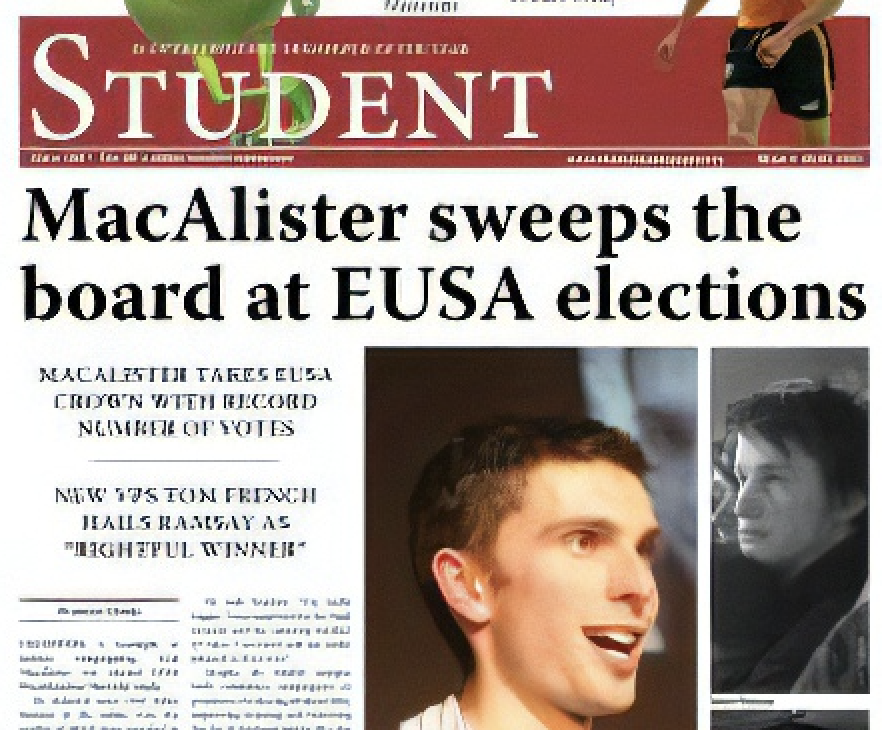
Luke Myer (Middlesbrough South and Cleveland East) was Vice President Academic Representation at Edge Hill Students Union just five years ago – he went on to be Policy and Public Affairs Officer at the Quality Assurance Agency (QAA) and was almost VP Higher Education at NUS. He’ll be baffled by OfS’ hostile takeover of quality in England.
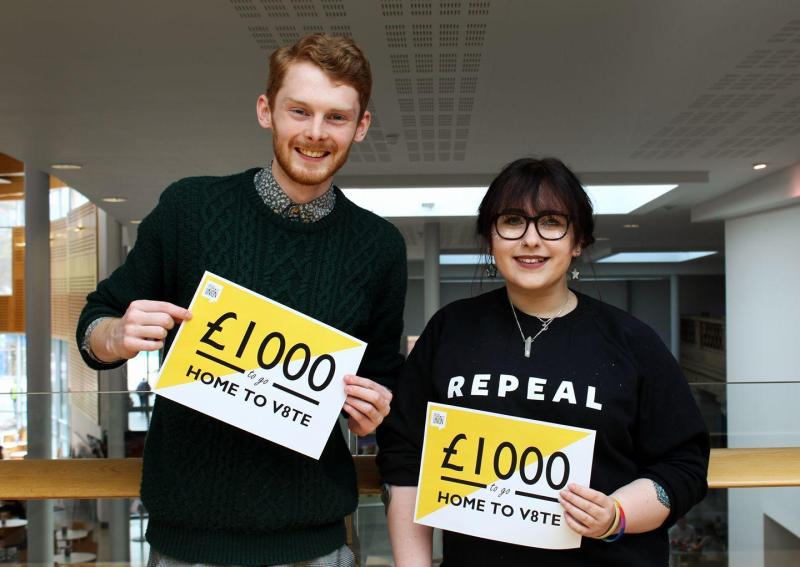
Remember when Andrea Jenkyns was higher education minister for about 5 minutes flat, using her time in Liz Truss’ government to vow to crack down on “Harry Potter degrees”? Replacing her in Leeds South West and Morley is Mark Sewards, who was keen on addressing PG funding when he stood for the NUS NEC twelve or so years ago, having been Communications & Internal Affairs Officer at Leeds University Union.
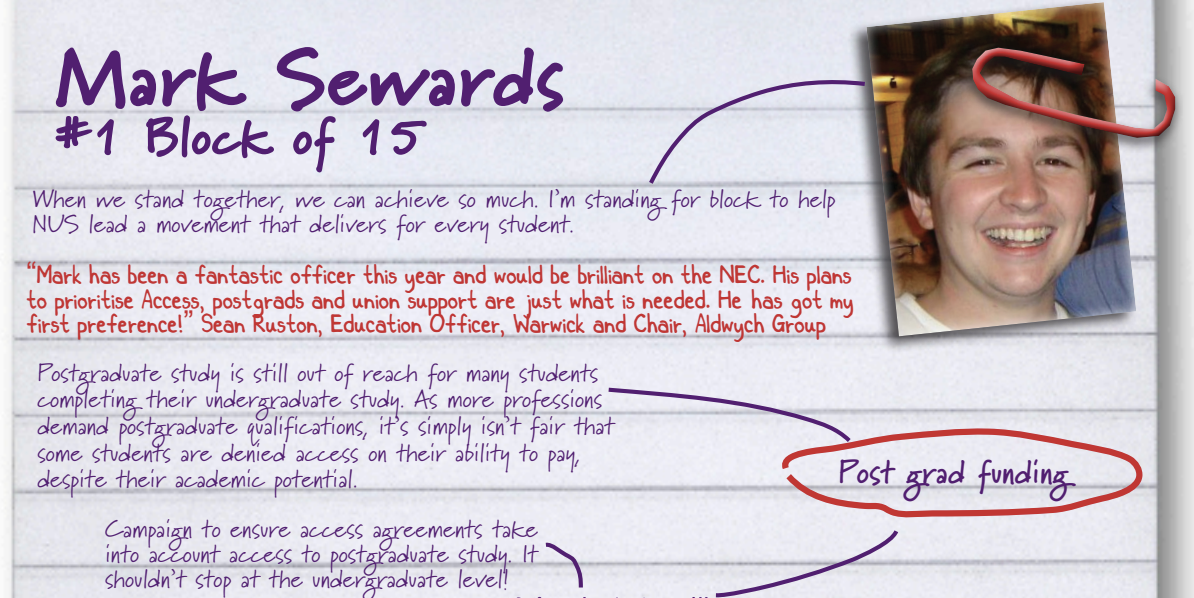
Michael Payne (Gedling) stood on a ticket of addressing Lancaster University’s “achilles’ heel – graduate employability” when he became its SU’s President in 2009. Jacob Collier (Burton and Uttoxeter) had a run at regulating landlords during his time as Community Officer at the University of Nottingham Students’ Union. Yuan Yang (Earley and Woodley) was the sabbatical Women’s Officer at Oxford SU. Sam Carling (the new “Baby of the House”) was President of Christ’s College JCR, Cambridge and is now MP for North West Cambridgeshire. Rachel Taylor (North Warwickshire and Bedworth) was VP Welfare at Leeds University Union. Jo White (Bassetlaw) was Gen Sec at Manchester.
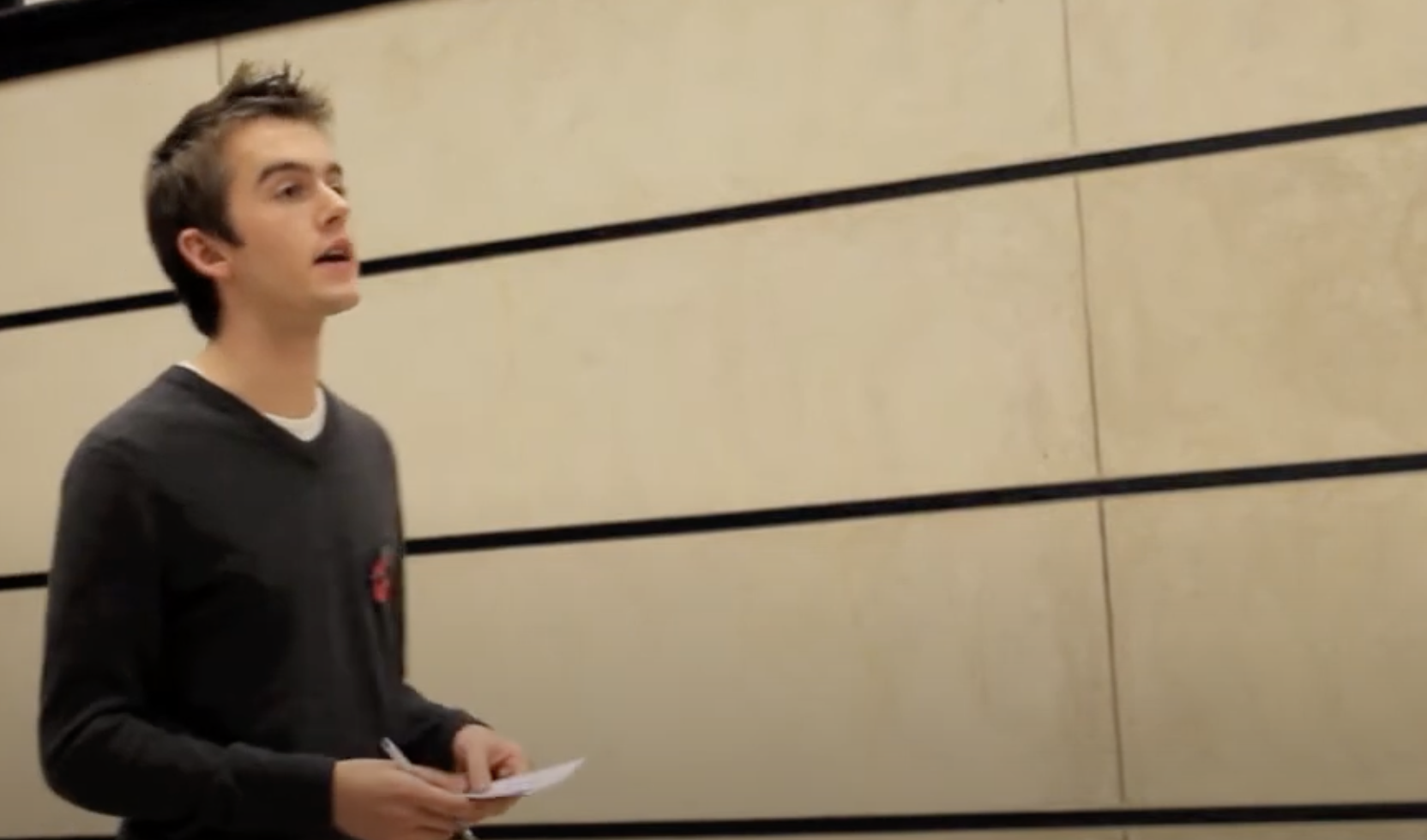
One of the remarkable things about watching Tom Rutland’s Oxford SU hustings speech from 2012 (Worthing East and Shoreham) is how long-term many of the issues that students raise are. Rising living costs, uncertain job prospects post-graduation, better library hours, increased SU funding and enhanced access and outreach efforts could be a manifesto today. Another former OUSU President from the late 00s – Alan Strickland – has taken Newton Aycliffe and Spennymoor.
Standing on my values
Nes(il) Caliskan (née Cazimoglu) is the new MP for Barking – Margaret Hodge’s old seat. Nes was VP Democracy & Campaigns at Reading in 2010, and as I remember was a natural-born campaigner – persuading several coach loads of students to join that big National Demo that everyone remembers in 2010.
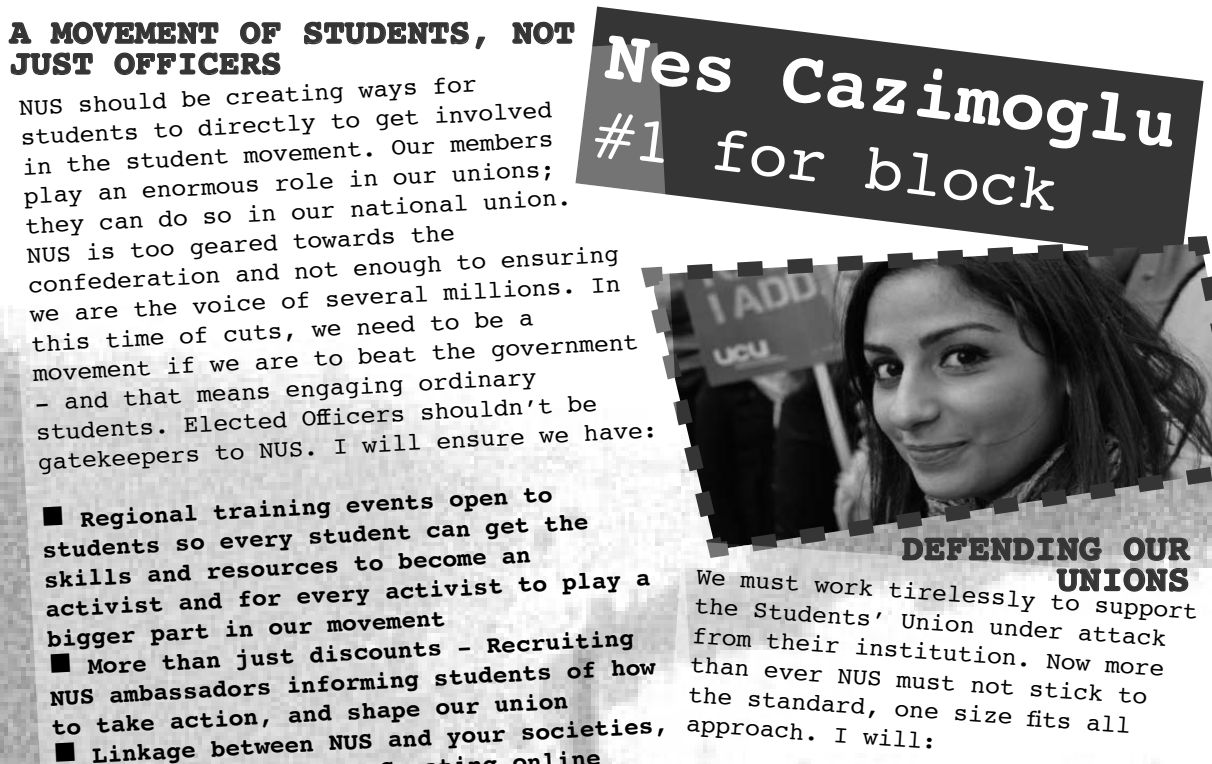
Josh Fenton-Glynn (Calder Valley) was a big name on Guild Council at Liverpool, Antonia Bance (Tipton, Wednesbury and Coseley) was a big wheel in the NUS Women’s Campaign, and Gareth Snell (Stoke on Trent Central) left Parliament in the 2019 election but is back – he founded Keele Labour Students in 2004 and was general secretary of the SU.
Luke Akehurst is a controversial figure for some – seen as a 90s era NOLS fixer. He’s a former Labour Students sabb who’s now MP for North Durham. Kate Dearden is also a former Labour Students sabb from 2017 – and now Halifax’s MP.
Over the years, the role that student leaders have played in mainstreaming EDI issues has been crucial. Naushabah Khan (Gillingham and Rainham) was Birmingham Guild’s first Women’s Officer (later Housing and Community Officer) – who thought the role would be “a great opportunity to show everyone else on campus why women’s issues were important and get the word out beyond my liberation group”.

There’s more. Mark Ferguson (Cambridge SU President in 06-07) is now MP for Gateshead Central, Michael Payne’s predecessor as Lancaster SU President, Tim Roca (2007-08) is MP for Macclesfield. And James Asser, NUS VP Welfare 1998-2000, and previously UCE (ie Birmingham City) Students’ Union, is Labour’s MP in West Ham and Beckton – and an early campaigner on lad’s mags:
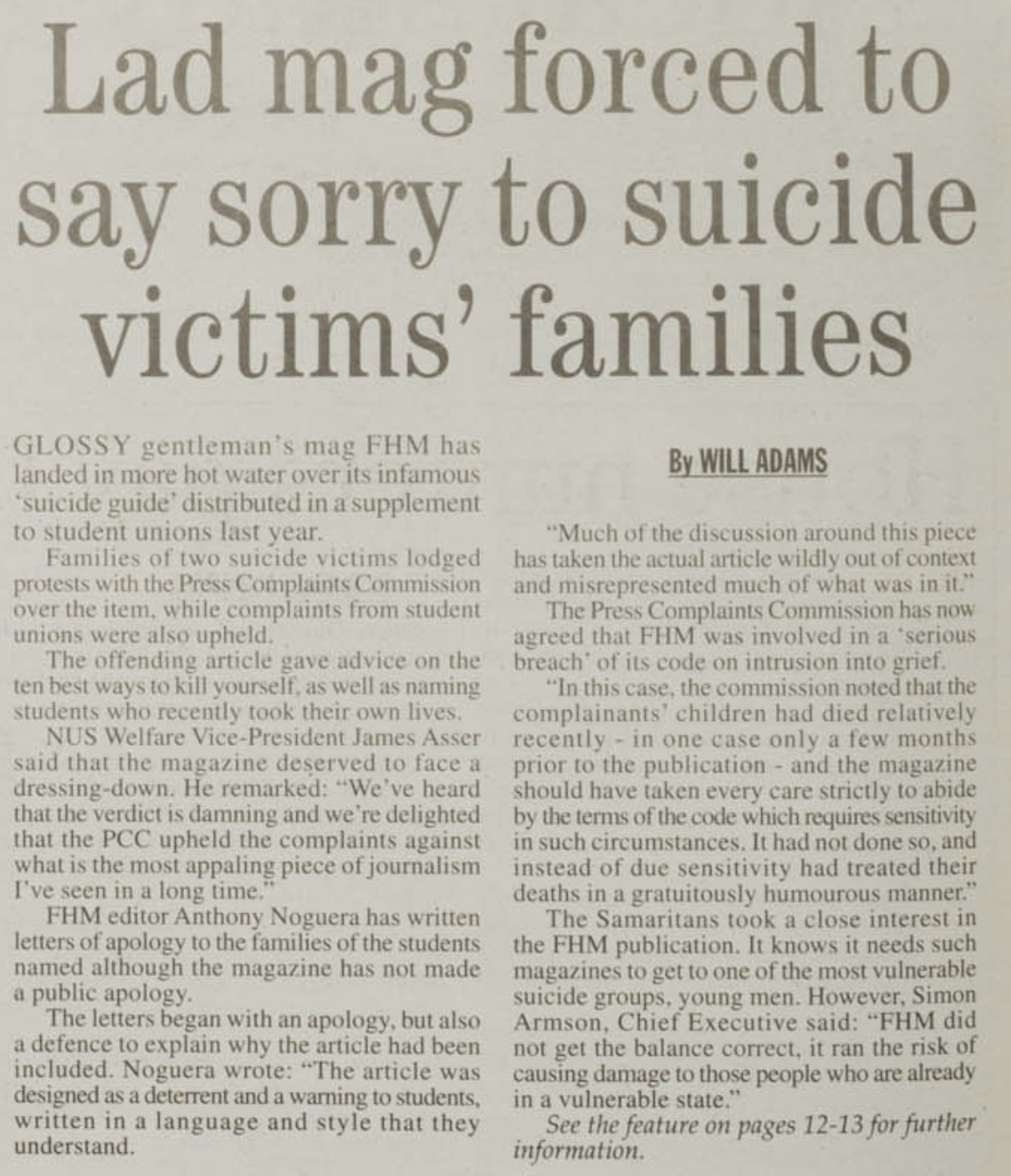
Of course, having former student activists in Parliament guarantees favours neither for students nor universities – and many MPs tend to be quite coy about their involvement in student politics, not least because the term has come to be associated with a brand of “childish radicalism” that many accused the Corbyn-era party of indulging in to defeat.
That said, having a glut of MPs that, in their youth, were elected to represent students, have been on the inside of a university governing body or have handled debates about fees and funding could also help in all sorts of ways – both in ministerial roles and in the numerous All-Party Parliamentary Groups and other activities that will need to be created to stop ambitious MPs from getting bored on the backbenches.
Although depending on your role in a university, it could also be a hindrance.
What’s that you say? What about Jacqui Smith, the former Home Secretary who’s been appointed into the Lords as the new universities and skills minister? Well, Smith was President of the Junior Common Room (ie SU) at Hertford College, Oxford, Labour Students National Secretary and unsuccessfully ran for the presidency of Oxford’s central SU in 1984. John Kampfner wrote the manifesto:
If memory serves it was all about providing more pegs for the locker room and that type of stuff.





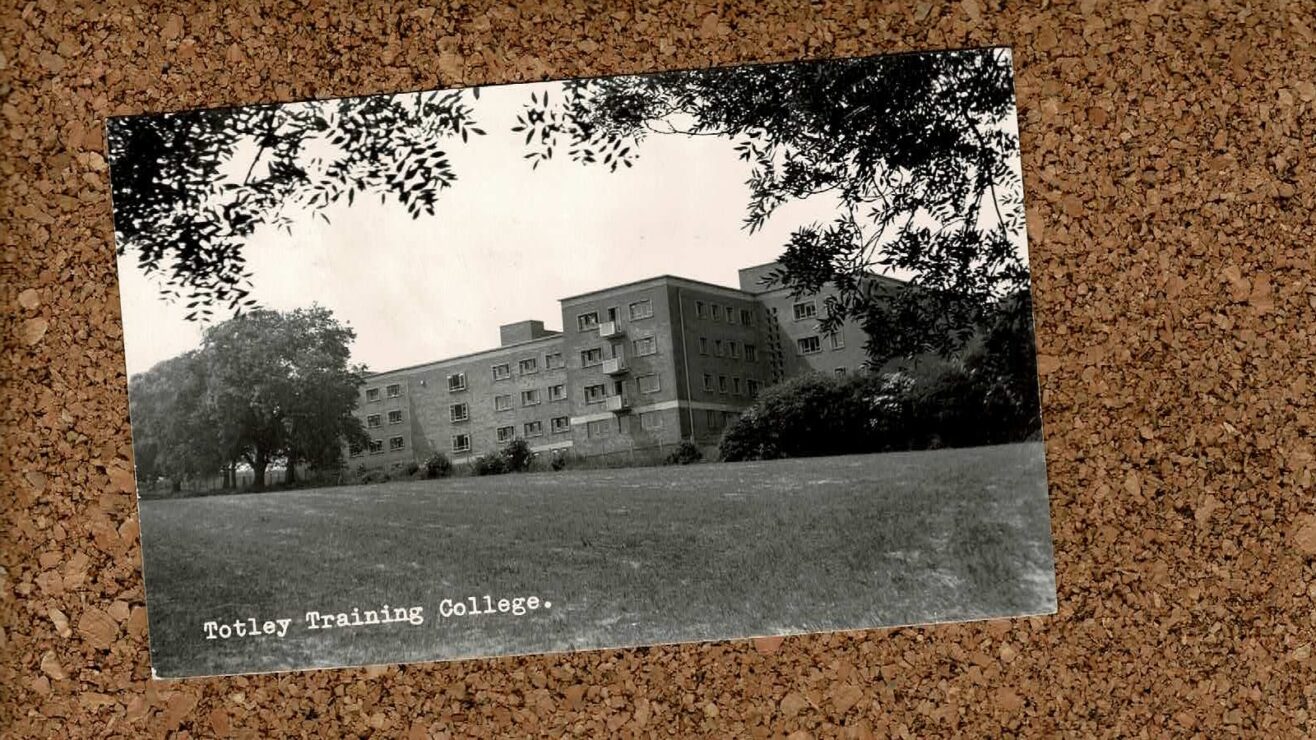








Depressingly white and male list of people here ….
“One of the remarkable things about watching Tom Rutland’s Oxford SU hustings speech from 2012 (Worthing East and Shoreham) is how long-term many of the issues that students raise are”. Yet none of these Labour Party students won any major victories on these issues and going by the vacuous of the section of the LP manifesto on HE, nothing much is likely to change. Will we see the rise of a Reform on campuses? I wouldnt bet against it and, as in France, the failures of the centre left will embolden and enable the far-right.
Ah Jim….you bring back memories of 1991… one of the few times all the NOLS factions united, and just to vote for reopen nominations to stop the RCP winning President. They also all united in asking me to move the motion to suspend 14 standing orders in a row, which allowed the elections to be held at that meeting. The Steering Committee were bamboozled as I read out the sequence. I have no idea what NOLS paid for that legal advice… The untold story in those voting numbers were the very large number of delegates who left totally disillusioned in… Read more »